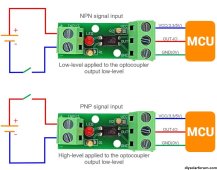I’m using my 24V battery to supply the 24V control signals to drive a couple SSRs and looking for the easiest way to protect that wire.
Since the currents are minuscule, I’m thinking I can just use a 1A or 2A inline-fuse like this:
Just thought I’d check with in case anyone has a better solution or I’m missing some issue with using a simple inline fuse for this need.
Since the currents are minuscule, I’m thinking I can just use a 1A or 2A inline-fuse like this:
Just thought I’d check with in case anyone has a better solution or I’m missing some issue with using a simple inline fuse for this need.




